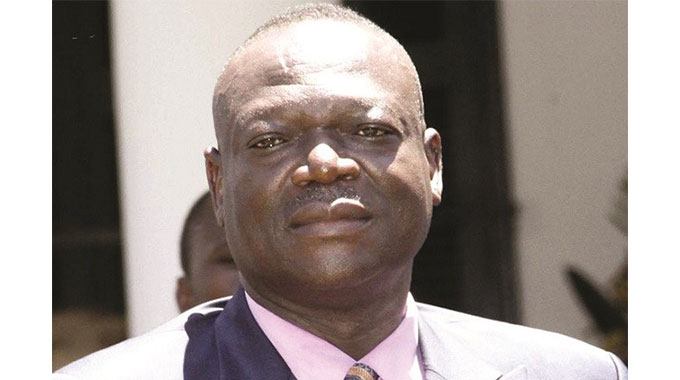EDITORIAL COMMENT: Goverment takes right direction on Command Agriculture funding

In line with the new approach of reducing public expenditure, the Government has, beginning this forthcoming farming season, opened financing for Command Agriculture to private sector participation.
Since its launch in 2016, the Special Grain and Oil Seed Programme, more commonly known as Command Agriculture, had up to last year’s harvest, gobbled hundreds of millions of dollars in Government funding. It involved the provision of seed maize and soya, machinery, fertiliser, fuel, technical support, among other inputs to farmers who qualified because their properties had functional irrigation infrastructure and were technically qualified to harvest big.
Farmers had to be able to put a minimum of 200 hectares under maize per individual, to produce at least 1 000 tonnes of the staple per season and commit five tonnes per hectare towards repayment of advance loans in form of equipment and or inputs.
In its first season, $162 million was poured into the scheme before the funding was more than doubled to $400 million in 2017.
Under the direct stewardship of President Mnangagwa, then serving as vice-president, the country harvested more than 2,1 million tonnes of maize in the 2016/17 season, the biggest harvest in many years.
Encouraged by that initial success, the Government expanded Command Agriculture to include other crops such as cotton as well as cattle, goats, fish, poultry and so on.
Indeed, the Government was able to save a lot because rising food output meant there was no need to spend scarce foreign currency to import food.
However, it was also evident that the high spending put a substantial strain on the fiscus, a kind of strain that the Government could not stand at this time of economic challenges.
Presenting the 2019 national budget last November, Finance Minister Professor Mthuli Ncube made it clear that Command Agriculture had boosted national food security, but said there was need for financial institutions to play the central role in lending for farm production on a commercial basis, freeing up Government resources to support vulnerable communities who are so resource-poor they cannot approach a bank for agricultural loans.
The Government has started executing that new policy position, said Lands, Agriculture, Water, Climate and Rural Resettlement Minister Perrance Shiri during a Question and Answer session in the Senate on Friday. Treasury, he added, had committed to issue $968 million worth of guarantees.
“We have approached various stakeholders to play their respective roles and we are in the process of receiving and distributing inputs to the farmers,” he said.
“So, funding has been availed for the coming 2019/2020 season though the approach this year is slightly varied from what we used to do. However, funding has already been put in place and acquisition of various inputs like fertilisers, chemicals and seed is already taking place and has taken place in some cases and farmers have started receiving inputs.”
Minister Shiri said Command Agriculture was a transitional arrangement which was not meant to replace the role of market forces and the role of financial institutions in financing agriculture.
“Once the private sector comes on board and starts financing agriculture, Government’s involvement shall only be limited to a regulatory role and capacity building. To ensure that the programme is fully funded, the financing mechanism is highly dependent on strong public private partnerships. In this kind of arrangement, Government invites private partners to fund the programme at a rate not exceeding four percent,” he said.
This means that, going forward, there are no free funds anymore for our farmers, particularly those who have the wherewithal to secure commercial loans from the financial services sector.
We are fully in support of this new direction that the Government has taken because of a number of factors.
Our experience has been that some of our people abused free inputs through selling them or by simply keeping them on their farms. They knew that they got the inputs for free, thus could sit on them or sell them, not put them to productive use with no consequences thereafter. Many growers defaulted on their payments having benefitted from Command Agriculture and a few other prior Government-funded programmes. These cases of abuse resulted in the promulgation of Statutory Instrument 274 of 2018 gazetted in November last year.
In terms of the regulations, any person who deals in or handles agricultural inputs or contract produce in contravention of a scheme contract, that is to say, purchases, receives, stores, sells, obtains, possesses or otherwise disposes of agricultural inputs (or) purchases, receives, stores, sells, obtains, possesses or otherwise disposes agricultural produce is “guilty of an offence and shall be liable to a fine not exceeding level 4 or imprisonment not exceeding three months or both such fine and imprisonment,” read part of the regulations.
Further sanctions entailed the Government blacklisting those who abused the support.
Therefore, the new funding model is good in that farmers are bound to produce to be able to repay the commercial loans they would have secured from banks. This, we believe, will inculcate a greater sense of responsibility and accountability among our growers, a spirit that is rare when they get free inputs.
When farmers work so hard to be able to harvest big and be in a position to repay their loans, output obviously increases. This would be good for national food security and economic recovery and growth.
As the Government discontinues support for Command Agriculture, the private sector moves in. CBZ, Agribank and Stanbic had, by September 18th, signed up under the new model. This would be a welcome stimulus for greater business for them. As this happens, the Government would be able to make substantial savings as it will spend less, thus stand a good chance to live within its means with little risk of running ruinous budget deficits.










Comments